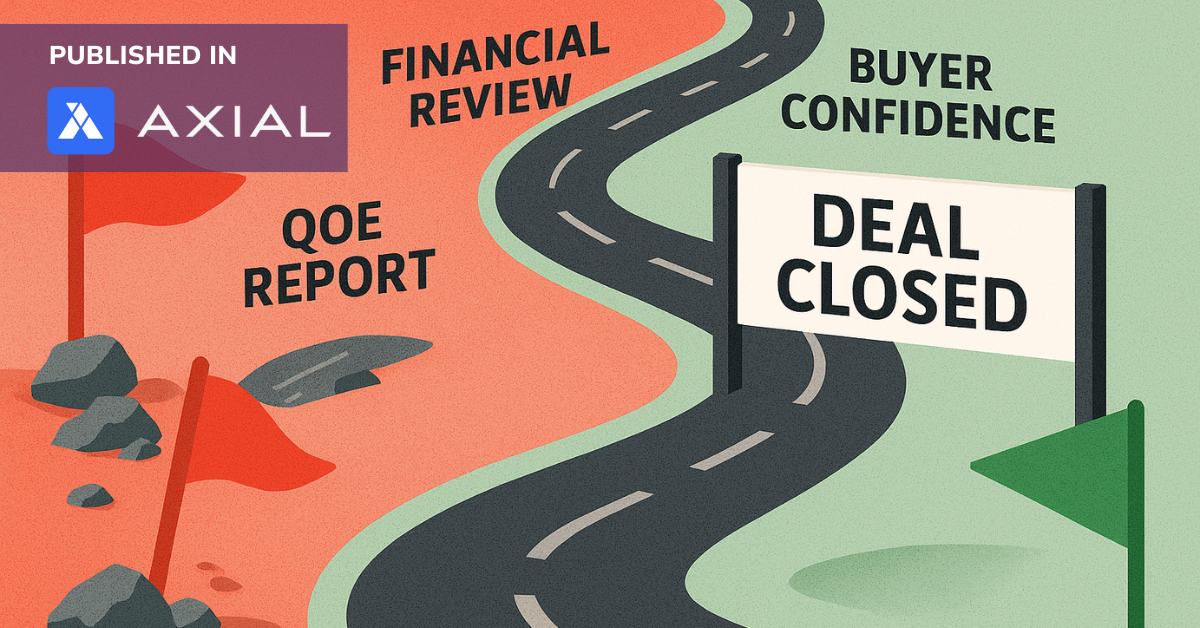Don’t let environmental issues prevent you from earning the maximum $$$ when selling your business.
If you hide your head in the sand on potential environmental issues prior to a business or property sale, you may unfortunately discover the sand is quicksand and watch the transaction’s expected profits sink fast. There are ways to mitigate and plan for environmental issues that will save you significant dollars if you handle them up front.
For example, McCarter & English recently represented a purchaser of a multinational company – one that had owned a manufacturing facility for more than 20 years – and the seller was certain it (though perhaps not its predecessors) had operated in full compliance with environmental laws. The seller undertook a cursory evaluation of the environmental conditions at the plant in preparing to sell the business in hopes that the evaluation would not uncover issues and thus profits could be maximized. The purchaser was extremely interested in the business and put a very lucrative offer on the table. As the transaction was nearing the closing, the purchaser’s lender required a Phase 1 Environmental Site Assessment (ESA) to determine the condition of the property and facility. To the horror of the seller, numerous environmental conditions were identified – some could be handled quickly, but others required additional investigation and long-term remediation. The buyer agreed to purchase the company but required the seller to place $5 million of the sale proceeds in an escrow account that could be drawn down as the seller conducted the remediation of the property. While the seller was not happy with that outcome, he thought (erroneously) that the remediation could be done quickly and cheaply, so he agreed to terms that gave the purchaser the right to use its own environmental consultants and direct the remediation at the seller’s expense. As the buyer continued its investigation after the closing, it became clear that contamination was far more significant than either party knew. Four years later, with only $600,000 remaining in escrow, the source of the contamination still has not been fully delineated. And worse for the seller, there is litigation now pending against the seller by former employees who have brought toxic tort claims alleging their cancer was the result of exposure to hazardous materials in the building. Consequently, in this instance, a business owner who thought the money he put into escrow would be his retirement nest egg likely will never see a penny of these funds.
Don’t be this seller! The owner received much less return than what the business was worth because he did not plan properly. So how can you avoid this fate?
Owning and managing your business goes deeper than making a profit. In fact, your stewardship of the land and groundwater under and around your facility goes hand in hand with ensuring the healthy working environment inside the building.”
Environmental drivers in the M&A process
Early Self Due Diligence
Prospective buyers will look for specific factors when developing their valuations of your company. Your M&A advisors will have the experience to anticipate and address these factors before significant discussions commence.
A serious buyer will perform extensive environmental and other due diligence prior to consummating a transaction. Any surprises at this stage have the potential to negatively impact a deal. Trust is critical to a successful transaction, and the last thing you want to put in the mind of a buyer is doubt. A buyer could think, “If they didn’t mention this problem, what else might we find?”
You can avoid any surprises by conducting your own due diligence process with your team of advisors prior to bringing your business to market. Be ruthless! Rest assured that the potential buyer’s environmental consultants and attorneys will be. Through rigorous and early self-assessment, identify any and every possible issue that may be perceived as a negative. By conducting this process well in advance, you will gain the ability to identify potential problems and either eliminate them or mitigate their effects over time, long before you begin the divestiture process. The decisions you make today will determine the returns you will receive in the future.
Conduct a Phase 1 Environmental Site Assessment
While conducting environmental due diligence early is important, be aware that purchasers and their lenders will require a more recent Phase I ESA. Federal and state regulations now mandate that purchasers can avail themselves of potential defenses to environmental liability only if a Phase I ESA is less than 180 days old. If a Phase I ESA has gone stale, obtaining a new one could delay the transaction. Consequently, keep an eye on the closing date and the freshness of the Phase I ESA. While a second Phase I ESA may be needed to close a transaction, the more recent report will presumably have no, or only minor, issues, since the issues likely would have been addressed as a result of the earlier investigation.
M&A advisors can help you select an appropriate service provider to complete a Phase I ESA prior to marketing your company. Many states (most notably Connecticut and New Jersey) have unique transfer-triggered environmental laws, so it is imperative that the environmental consultant be located in or otherwise have expertise in the laws of the state(s) where the business operates. Using specialized M&A advisors, environmental counsel, and consultants should enable accurate budgeting for both known and unknown conditions that inevitably arise in M&A or real estate transactions. Escrow accounts can be established to back up the responsible party’s agreement to remediate and provide assurance that funds won’t be depleted.
Precisely Allocate Environmental Liability
Indemnities and releases must be drafted with precision to be sure the liabilities rest where intended at the time of the transaction. Courts have liberally interpreted these contract provisions when necessary to be sure that the environment is protected – often regardless of the parties’ intent as to who should bear that responsibility. Similarly, environmental counsel should be involved from the outset, as potential liabilities can be catastrophic, and most corporate or real estate attorneys simply do not know enough about this highly specialized area. Environmental attorneys can be of far less assistance if, on the eve of closing, they are engaged to “fix” an environmental issue.
Other Issues to Consider
Don’t forget that for a business to operate with new owners, permits may need to be transferred from seller to buyer. Sometimes regulatory agencies must approve the proposed transfer prior to closing. Obtaining their approval could take weeks or even months.
Another consideration – insurance. If a buyer starts getting “cold feet” about environmental issues, consider having an insurance policy in place that could name the buyer as an additional insured. Again, these policies must be carefully crafted (which takes time) to be sure that the exclusions to the policy do not eviscerate its value.
Don’t Let Environmental Issues Steal Money From Your Pocket
The owner and management team must be transparent with all areas of concern during a transaction, particularly environmental issues. It is best for business owners to be honest with themselves and get a handle on the true status of their environmental conditions up front and remedy what they can. You do not want to have a prospective buyer identify problems that will: lead to further investigations, slow down the process and reduce the amount of cash you end up with.
The chances are you have never sold a business before, and this is likely one of the most important financial decisions of your life. Make sure you assemble the right team of experienced advisors to assist you through the process. This includes experts in accounting, tax, legal and investment banking issues. Each will play a specific role, protecting you and your assets, providing you with insight, expertise and guidance to make the tough decisions along the way so you can earn the maximum value for your life’s work.
CLICK FOR MORE INFORMATION
CALL 201.712.9555 TO DISCUSS






